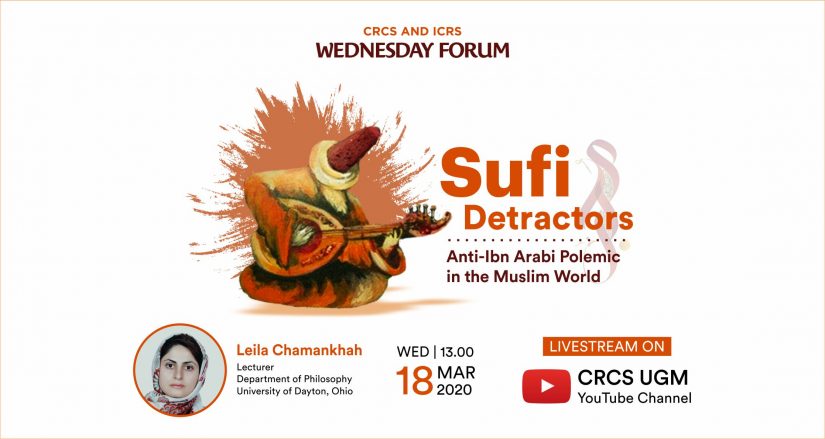
Sufi Detractors: Anti-Ibn Arabi Polemic in the Muslim World
Wednesday Forum – 18 March 2020
Muḥy al-Dīn ibn ʿArabī’s (d. 638 H/1240) theoretical mysticism has left its imprint on several intellectual tendencies such as Sufism, esotericism and philosophy. In addition to his admirers, however, al-Shaykh al-Akbar’s ideas such as the Perfect Man, waḥdat al-wujūd (the Unity of Being), aʿyān-i thābita (fixed entities), and the theory of guardianship (wilāya) have brought him a long list of enemies who have accused him of heterodoxy, blasphemy and deviancy. Even figures such as Aḥmad ibn Taymiyyah (d. 728 H/1328), who himself was a member of the Sufi order of Jīlānīyah, refuted him. A commonly quoted authority for Salafis, Ibn Taymiyyah successfully created a discourse, which later served individuals such as Muḥammad ibn ʿAbd al-Wahhāb (d. 1792), to describe Sufis as outside the faith.
Leila Chamankhah has a dual Ph.D. in Islamic studies (with specialization in Shia intellectual history) and political science (with specialization in Iranian studies). She teaches at the Department of Philosophy, University of Dayton, Ohio. Her first book in English entitled The Conceptualization of Guardianship in the Iranian Intellectual History (1800 -1989): Reading Ibn ʿArabī’s Theory of Wilāya in the Shīʿa World was published by Palgrave McMillan in September 2019.
Look at the full poster of this event here.

